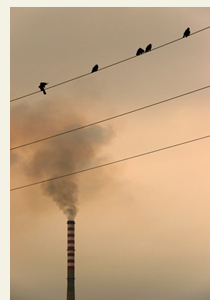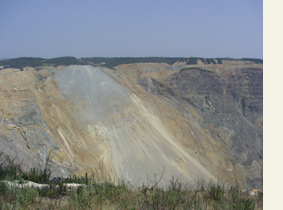|
The project REinforcing S&T CApacities of two emerging research centers for natural and industrial pollutant materials in Serbia and Slovenia (RESTCA) is part of Seventh Framework Programme (FP7) of the European Commission. Under the moto: ‘Tomorrow’s answers start today’, FP7 is the EU's main instrument for funding research in Europe. ID of RESTCA: RESTCA is aimed at reinforcing the scientific and technological standards of two promising research centers which have a great potential for study of natural and industrial solid pollutants: University of Belgrade - Faculty of Mining and Geology, Serbia (UB-FMG) and Department of Geochemistry and Environmental Geology, Geological Survey of Slovenia (GeoZS). These institutions will establish a strategic partnership among each other and with the Institute of Geosciences, Division of Mineralogy, University of Frankfurt, Germany (GUF).
The major project objectives are: (i) strengthening the international co-operation networking and partnership between the UB-FMG, GUF and GeoZS and setting-up a brain-gain environment, (ii) improving material research standards at the UB-FMG by renewal and upgrade of the facilities, (iii) exploiting the research and technological demonstration results of the GeoZS and UB-FMG and promoting them to national/regional centers of excellence, (iv) networking among the institutions from the European region of convergence and Western Balkan, (v) promoting the ideas of the EU 7th Framework Program, and (vi) counterbalancing the effects of ’brain drain’ in Serbia. ______________________________________________________________________________________________ The Up-Bottom Approach
of the project is evident because RESTCA follows the research priority of FP7 related to industrial wastes. A vast majority of industrial waste in Serbia and adjacent regions is related to the processes of mining and energy production. For instance, only at the tailings near Bor and Krivelj cooper mines there are around 120.000.000 tons of mining waste material. The investigation of such waste material is closely related to an understanding of the general geological framework, paragenesis, crystal structure and composition of ore minerals and other pollutant material, as well as their behavior under various geochemical conditions. The formation of a network of laboratories for microanalytical studies of various natural and industrial solid materials would ensure that the UB-FMG is one of the few institutions with such capabilities
These objectives are to be achieved by support and management actions organized in six Work Packages. These actions include: (i) staff mobility in order to mobilize and reinforce the quality of human resources, (ii) purchase and renewal of the equipment, (iii) organization of lectures, short seminars and thematic workshops, (iv) opening two post-Doc positions, and (v) various dissemination and management activities
_____________________________________________________________________________________________________________________________ Earth Sciences for Society
|
Copyright © 2008. All Rights Reserved | Powered by RESCTA |
|
|


